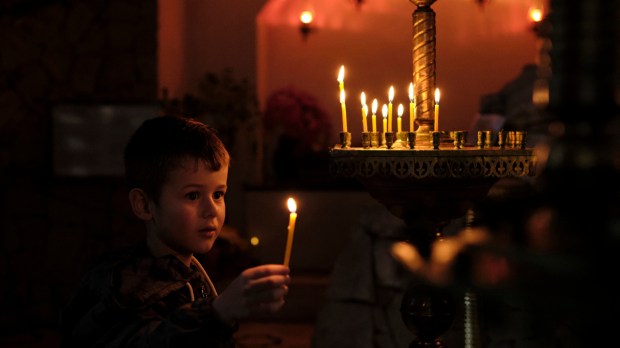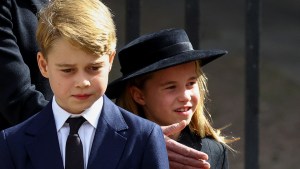Does it feel kind of odd to think of taking your young child to a funeral? I understand, because I used to be conflicted about the idea myself.
But in the decisive moment, my husband felt it was the right thing to do. His reasoning won me over, and I’d like to share with you what he told me.
A few weeks ago, a family friend passed away. Our children didn’t remember her, but before she had grown ill with dementia, she had hosted my young family in her home for holiday dinners.
My husband felt it was only right that we all attend her funeral as a family to pay our respects to someone who had been kind and hospitable to us.
If you are not sure whether or not to take your young child to a funeral, here are a few points to consider. These are the factors we took into account when deciding whether or not to bring our kids to this funeral.
1The comfort and preference of the mourning family is of paramount importance
I would never take my child to a funeral if the grieving family prefers that I didn’t. Their preference is the first thing we took into consideration.
I was worried that my young children might make noise during the funeral (especially the baby), and the last thing I wanted to do was seem to show any disrespect or lack of concern for the grieving family.
We resolved this issue by having a relative reach out to the family privately and ask about their preference.
Instead of being offended, as I had worried they might be, they said it was fine to bring the kids. In fact, they were deeply touched that I wanted to bring them!
In turn, I made it my mission to make sure my children were quiet and respectful during the service. I packed quiet books and activities to keep their little hands busy, and my husband and I took turns taking the baby outside anytime she made a peep.
We pulled it off, and afterward the family thanked us for coming and bringing our kids. Seeing cute little kids brought a smile to everyone’s faces at a time when they needed it.
2We show our children how to honor the person who has died
My husband is of the opinion that one should “always go to the funeral” if possible. He remembers how much it meant to him when friends came to his grandparents’ funerals, and he sees it as our duty to show this last act of respect to the deceased.
That’s how he explained it to our kids too. They asked why we were going to the funeral, and he told them, “It’s our duty to go and honor the life of this kind lady who we knew.”
This is such an important lesson for our kids to learn. Many people, especially young people, feel uncomfortable attending funerals. But it’s so important to push through that discomfort.
We believe that bringing our children to funerals will teach them how to honor and respect those who have died. As my husband told me, “It’s important to instill in the kids from a young age the importance of paying respects and offering support for those that are grieving.”
3We teach our kids how to support loved ones who are grieving
Again, this is such an important lesson, to be able to push through any personal feelings of discomfort to show up and be present for loved ones who are grieving a loss.
My husband reminded our kids of our relationship with the mourning family. “You remember how much fun you had with them, and how kind they were to you when we last saw them?” he said. “Now they are feeling sad and going through a hard time. So it’s really important for us to be there for them and show our love and support by going to this funeral.”
I really hope that our children remember these lessons we are trying to teach them. Even though they are young, they can learn to show up and show love to people who are suffering, and they can learn to show respect and honor to those who have died.
I hope they remember my husband’s advice to “Always go to the funeral” as they grow up, and especially why he said it. We hope that bringing our kids to funerals will help them grow up to be caring and respectful adults.



